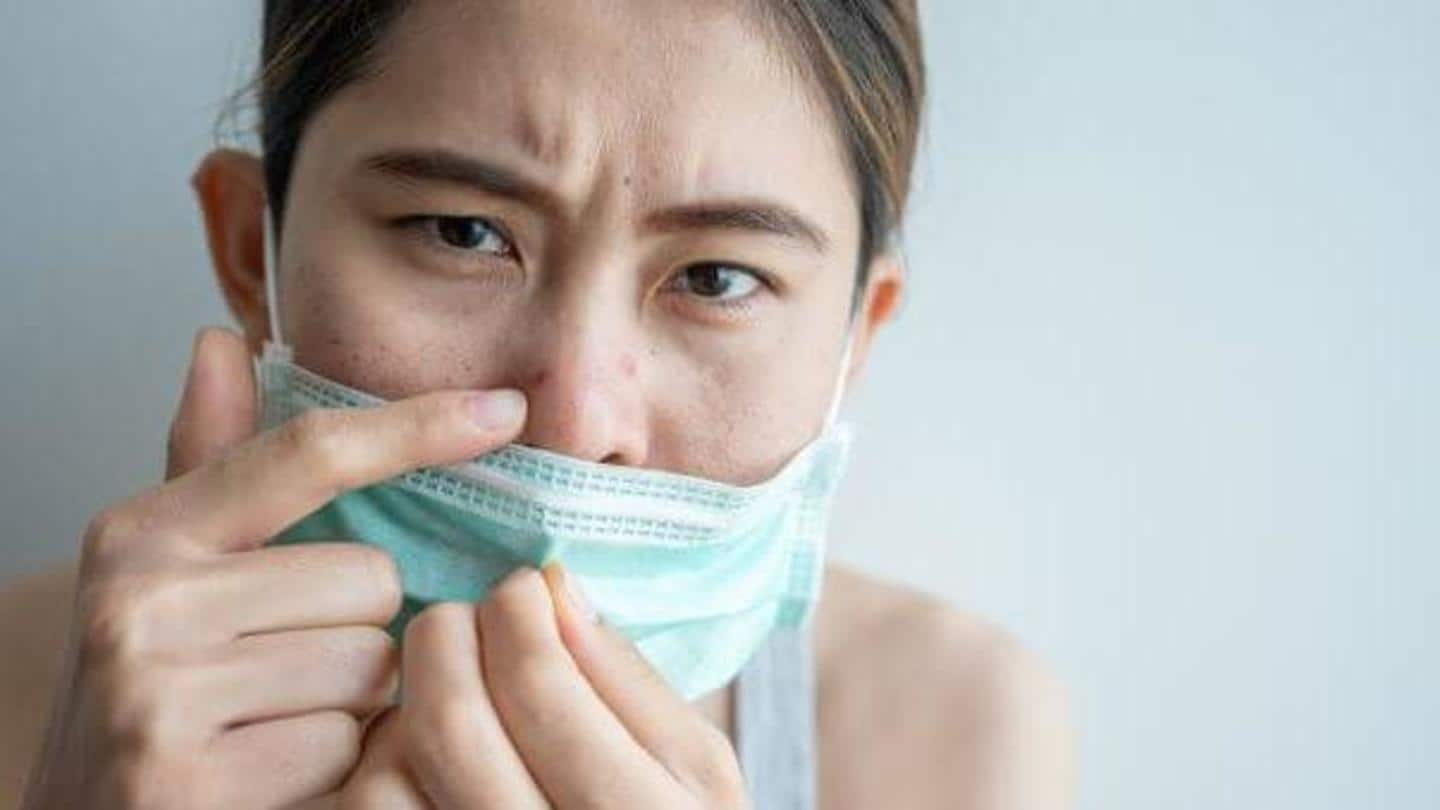
Having face-mask associated skin problems? Some ways to avoid them
What's the story
Regular usage of face masks has led to most of us dealing with a new skin problem - maskne. Maskne is a type of acne that's caused when the mask rubs against our faces. Redness and irritation of skin are other issues that are associated with regularly using masks. If you have face mask associated skin problems, here are some ways to avoid them.
Cleanser
Use a mild cleanser that is devoid of alcohol, fragrance
Always use gentle cleansers to remove dirt from the pores. To avoid maskne, use cleansers that are devoid of alcohol and fragrance, as they can irritate the skin. If your face has already begun to show symptoms of maskne, try a medicated cleanser with benzoyl peroxide or salicylic acid. For sensitive skin, consult a doctor regarding the best type of medicated cleanser.
Antibiotic cream
Apply a topical antibiotic cream before wearing the mask
Sweat and pollutants that pile up under the mask lead to bacterial build-up, and this can eventually cause acne. To prevent this, dermatologists suggest applying a topical antibiotic cream on the skin before wearing the face mask. After removing it, wash your face with a cleanser and apply a mild cortisone cream to the area, in case you notice signs of skin irritation.
Masks
Wash fabric masks after every use, take mask breaks
Always wash reusable fabric masks after every single use. Use a mild detergent to avoid detergent allergy. Make sure to dry the face mask in the sunlight. It is also important to take mask breaks once every four hours to let your skin breathe. Make sure that you remove your masks after washing your hands and while you are at a distance from others.
Cotton masks
Wear masks made from soft and natural fabrics like cotton
The right type of fabric and fit is important to avoid skin issues. Choose a mask that fits snugly but one which is not too tight. Avoid masks made of nylon or rayon and opt for natural, soft fabrics like cotton. You should also make sure that the mask has two or more layers of fabric, and that it isn't too thin.